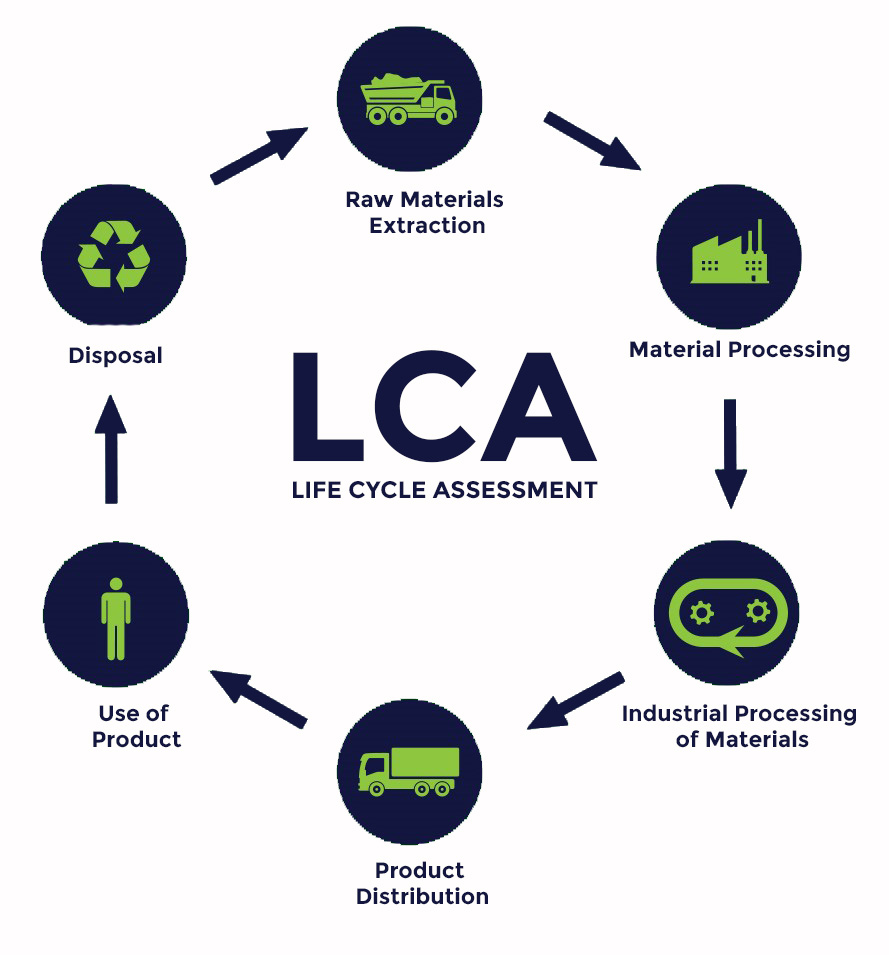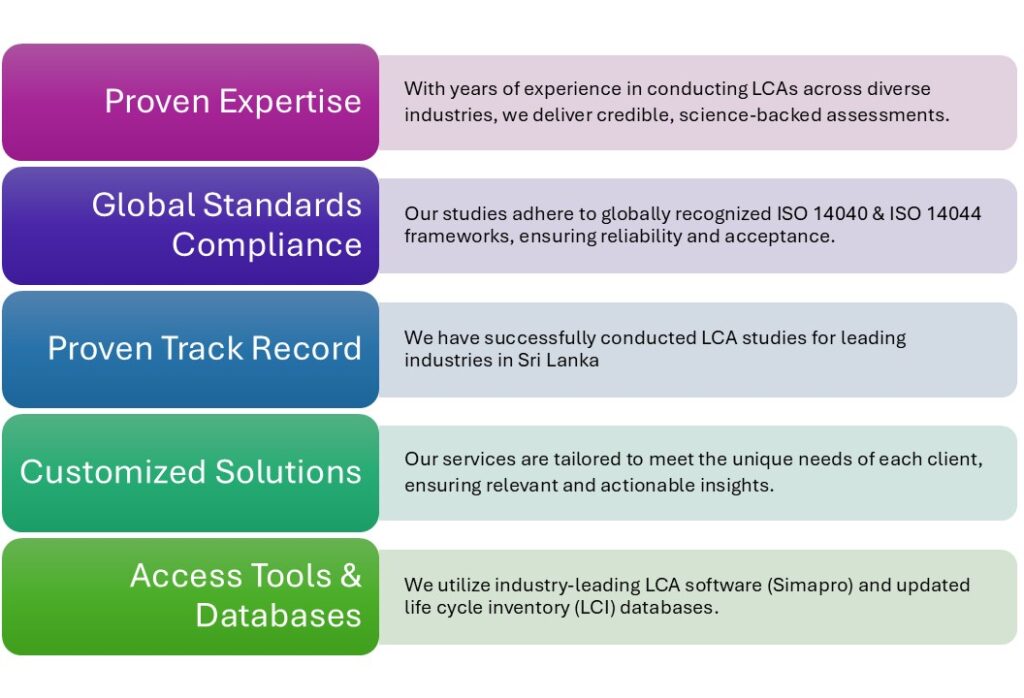Life Cycle Assessment (LCA)

Why LCA?
In today’s rapidly evolving global landscape, industries and governments are under increasing pressure to minimize environmental impacts and achieve sustainability targets. Life Cycle Assessment (LCA) is the most trusted and internationally recognized methodology for evaluating the environmental footprint of products, processes, and services—analyzing their impacts from raw material extraction to final disposal.
At NCPC Sri Lanka, we are at the forefront of LCA research and implementation, providing businesses with data-driven insights to make informed, sustainable choices. Whether your goal is to enhance resource efficiency, secure international eco-certifications, or meet regulatory requirements, NCPC Sri Lanka is your expert partner in driving sustainability forward.
Our LCA Expertise at a Glance
✅Latest Simapro Software – We use the most up-to-date version of Simapro for accurate and internationally aligned LCA studies. ✅40+ Product LCAs conducted across industries. ✅20+ Critical Reviews completed, ensuring high-quality and credible assessments. ✅Recognized by leading exporters, government bodies, and global partners.
NCPC Sri Lanka offers end-to-end LCA solutions tailored to manufacturers, exporters, policymakers, and sustainability teams.
Contact UsOur Comprehensive LCA Services
Full Life Cycle Assessment
We conduct detailed LCAs in accordance with ISO 14040 & ISO 14044 standards. Our team collects site-specific data and applies internationally accepted methodologies to assess environmental impacts at each life cycle stage—from raw material extraction to end-of-life disposal. These studies form the basis for strategic sustainability improvements and compliance with global standards.
Product & Process Optimization
Our LCA studies help identify environmental hotspots across production processes. This includes analyzing energy use, water consumption, emissions, and waste, all measured across 18 key environmental indicators. With this detailed insight, we guide you in making data-driven decisions to work more efficiently and sustainably.
LCA for Eco-Labels & Certifications
We support companies in preparing the necessary documentation and assessments for Environmental Product Declarations (EPDs) and other sustainability certifications. We help you collect the right data and align it with international eco-labeling requirements, making it easier to access global markets.
LCA Capacity Building
We empower organizations to build internal LCA expertise through hands-on training programs. These sessions include fundamentals of LCA, step-by-step guidance on conducting assessments, and technical training on LCA software tool, Simapro. Our approach ensures your team can independently perform LCAs aligned with global standards.
